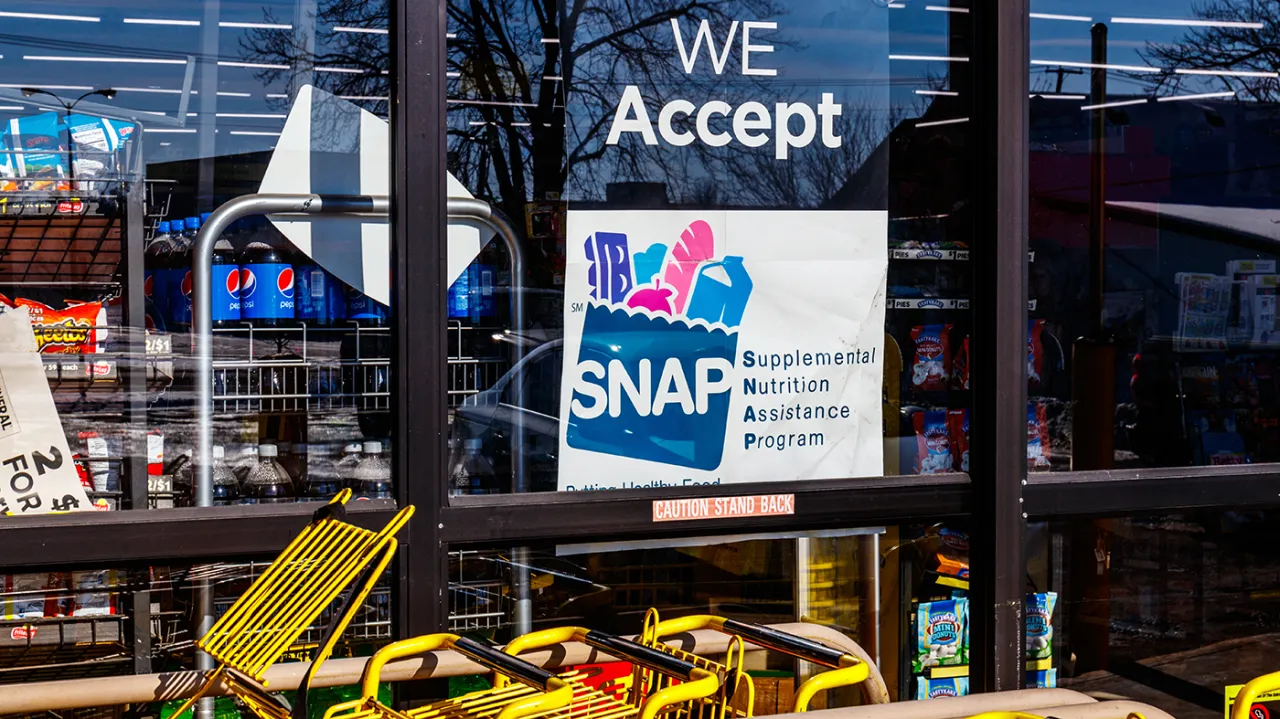
Senate Republicans make last-minute SNAP changes in Trump bill ahead of vote
How did your country report this? Share your view in the comments.
Diverging Reports Breakdown
Senate Republicans make last-minute SNAP changes in Trump bill ahead of vote
Senate Republicans have updated their proposal to reduce federal spending for Supplemental Nutrition Assistance Program (SNAP) The new bill would still require some states to cover a share of the cost of SNAP benefits if they have a payment error rate above 6 percent beginning in fiscal 2028. But the updated text also sharpens the proposal even further when it comes to which year’s error rates can be used to help determine the share a state could have to pay under the plan. The update comes as Alaska Republicans have recently raised concerns over the proposal. Republicans say the proposal is aimed at incentivizing states to get their payment error rates down, while Democrats have argued the measure could lead to states having to cut benefits. The bill still does not include language preserving exemptions for veterans, homeless individuals and youth that were in foster care previously greenlit by Congress as part of a bipartisan deal in 2023. But in a change from the initial text unveiled by the Senate Agriculture Committee weeks back, the bill also includes a exemption for parents or guardians of children under the age of 14.
The bill would still require some states to cover a share of the cost of SNAP benefits, which are currently completely funded by the federal government, if they have a payment error rate above 6 percent beginning in fiscal 2028.
But the updated text also sharpens the proposal even further when it comes to which year’s error rates can be used to help determine the share a state could have to pay under the plan.
The plan explicitly allows states to choose between using data from fiscal years 2025 or 2026 to calculate the states’ match for fiscal 2028. In fiscal 2029 and beyond, the match will be calculated based on the error rate from three fiscal years before.
However, the new bill also includes a “waiver authority” section that could allow for noncontiguous states, or Alaska and Hawaii, to see the requirements waived if they’re found to be “actively implementing a corrective action plan” and carrying out other activities to reduce their error rate.
The update comes as Alaska Republicans have recently raised concerns over the proposal.
“Our big thing is the data to be used, the data to be used on the error rate,” Sen. Dan Sullivan (R-Alaska.) told The Hill on Friday ahead of the new bill text’s release. “So, that’s important to make sure that the data is as accurate and reflective of the year you’re judging as possible.”
As part of the proposed SNAP plan, states with higher payment error rates cover a greater share of benefit costs. If the error rate is 6 percent or higher, states would be subject to a sliding scale that could see their share of allotments rise to a range of between 5 percent to 15 percent.
Numbers from the Agriculture Department showed Alaska’s payment error rate — which factors in overpayment and underpayment error rates — reached above 60 percent in fiscal year 2023. The national average hit 11.68 percent.
Sullivan said his state has seen much lower payment error rates prior to the pandemic and is on track to improve those figures, noting new numbers are expected soon. But he added, “It’s still higher than our traditional error rate, and as you know, the cost share is based in part on that.”
Asked briefly about the party’s SNAP proposals, Sen. Lisa Murkowski (R-Alaska) told The Hill on Friday, “We’re still in trouble on SNAP.”
“The implementation is still next to impossible for us,” she said.
Republicans say the proposal is aimed at incentivizing states to get their payment error rates down, while Democrats have argued the measure could lead to states having to cut benefits.
The Senate proposal also seeks to narrow exceptions for work requirements for nondisabled adults and calls for upping the age that nondisabled adults to “continue working through 64,” a committee breakdown of the bill details.
But in a change from the initial text unveiled by the Senate Agriculture Committee weeks back, the bill also includes a exemption for parents or guardians of children under the age of 14, and carveouts for those who are are “Indians, Urban Indians, California Indians, and other Indians who are eligible for the Indian Health Services,” the committee said.
The bill still does not include language preserving exemptions for veterans, homeless individuals and youth that were in foster care previously greenlit by Congress as part of a bipartisan deal in 2023. But the committee also told The Hill earlier this month that its plan would still not require “individuals who are physically or mentally unfit for employment … to meet the 20 hours per week work requirement whether in those groups or not.”
Other proposals in the SNAP plan also seek to limit the federal government’s ability to increase monthly benefits in the future and include a chunk of farm provisions that GOP leaders have argued will make it easier to craft a bipartisan farm bill in the months ahead — although Democrats have said otherwise.
Source: https://thehill.com/business/budget/5374926-senate-republicans-snap-gop-spending-bill-changes/
